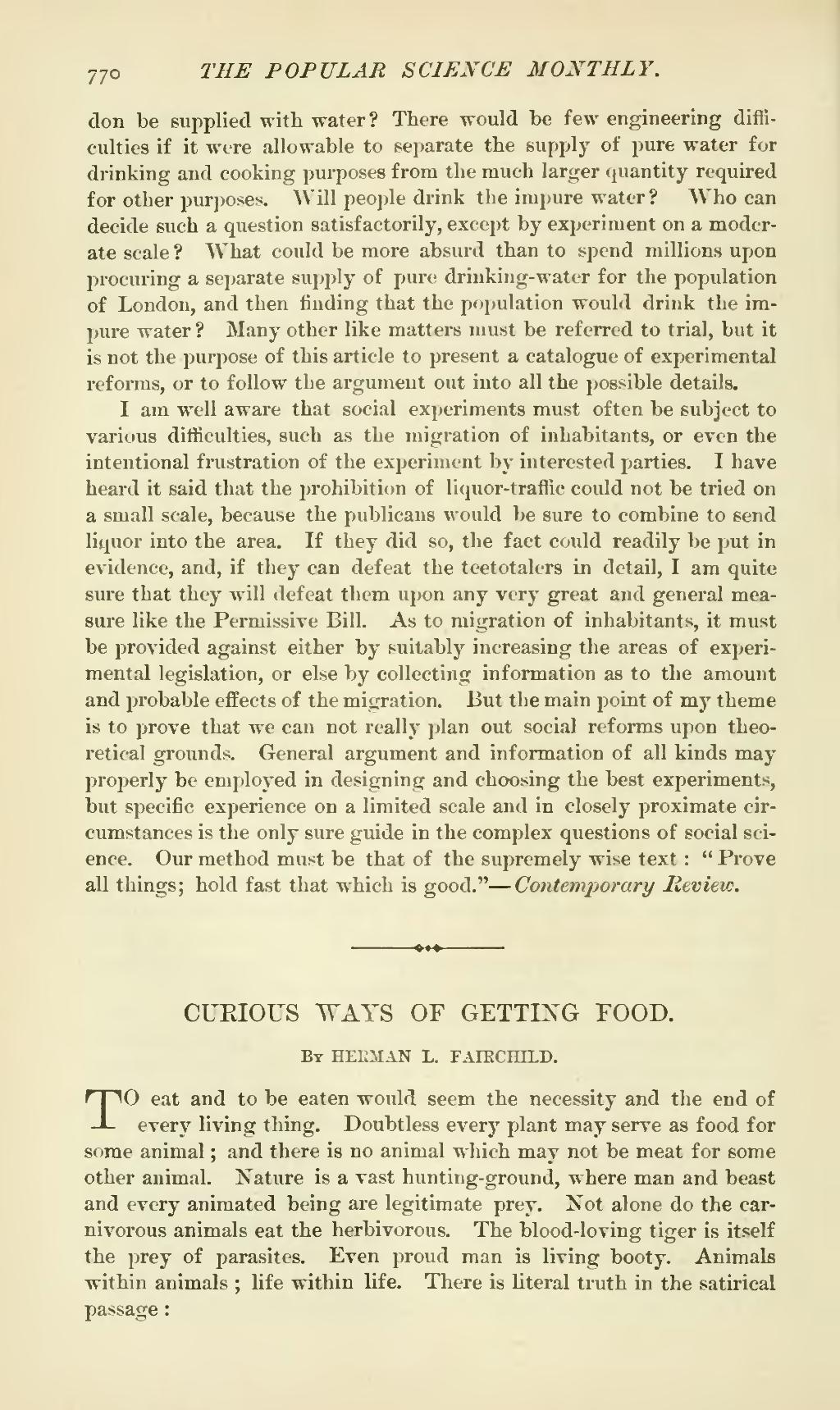don be supplied with water? There would be few engineering difficulties if it were allowable to separate the supply of pure water for drinking and cooking purposes from the much larger quantity required for other purposes. Will people drink the impure water? Who can decide such a question satisfactorily, except by experiment on a moderate scale? What could be more absurd than to spend millions upon procuring a separate supply of pure drinking-water for the population of London, and then finding that the population would drink the impure water? Many other like matters must be referred to trial, but it is not the purpose of this article to present a catalogue of experimental reforms, or to follow the argument out into all the possible details.
I am well aware that social experiments must often be subject to various difficulties, such as the migration of inhabitants, or even the intentional frustration of the experiment by interested parties. I have heard it said that the prohibition of liquor-traffic could not be tried on a small scale, because the publicans would be sure to combine to send liquor into the area. If they did so, the fact could readily be put in evidence, and, if they can defeat the teetotalers in detail, I am quite sure that they will defeat them upon any very great and general measure like the Permissive Bill. As to migration of inhabitants, it must be provided against either by suitably increasing the areas of experimental legislation, or else by collecting information as to the amount and probable effects of the migration. But the main point of my theme is to prove that we can not really plan out social reforms upon theoretical grounds. General argument and information of all kinds may properly be employed in designing and choosing the best experiments, but specific experience on a limited scale and in closely proximate circumstances is the only sure guide in the complex questions of social science. Our method must be that of the supremely wise text: "Prove all things; hold fast that which is good."—Contemporary Review.
| CURIOUS WAYS OF GETTING FOOD. |
By HERMAN L. FAIRCHILD.
TO eat and to be eaten would seem the necessity and the end of every living thing. Doubtless every plant may serve as food for some animal; and there is no animal which may not be meat for some other animal. Nature is a vast hunting-ground, where man and beast and every animated being are legitimate prey. Not alone do the carnivorous animals eat the herbivorous. The blood-loving tiger is itself the prey of parasites. Even proud man is living booty. Animals within animals; life within life. There is literal truth in the satirical passage:

